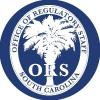State
West Virginia keeps working to extend broadband, Carmichael tells lawmakers
West Virginia development officials have been focusing on expanding broadband internet service through a range of resources, Development Secretary Mitch Carmichael told legislators. Money is flowing from federal, state, and local sources; specifically $33 million in state and local recovery funds, $70 million in Capital Project Funds (CPF), and $44 million in private investment.

How the FCC National Broadband Map Impacts the BEAD Program, Part 2 of 3: The Role of States and Territories in Selecting Locations Eligible for BEAD Funding
One of the primary uses of the Federal Communications Commission's National Broadband Map for the purposes of the Broadband Equity, Access, and Deployment (BEAD) program is the allocation process – the process of determining the amount of BEAD funds between the states, territories, and the District of Columbia (“Eligible Entities”).
Maryland Supreme Court Urged To Strike Down Digital Ad Tax
Comcast and Verizon urged Maryland's highest court to strike down a 2021 law that imposes a tax on some digital ads, arguing both that the statute violates the Constitution, and that it conflicts with a 1998 federal law. The hearing centered on a 2021 Maryland law that imposes taxes on some online companies with more than $100 million in digital ad revenue.
Governor Kelly (D-KS) Commits $30 Million to Increase High-Speed Internet Availability
Governor Laura Kelly (D-KS) highlighted a new program aimed at helping Kansas communities that lack high-speed internet. The Lasting Infrastructure and Network Connectivity (LINC) program will provide $30 million in competitive funding opportunities to build the infrastructure needed for more homes and businesses to access broadband. The goal of the LINC program is to reduce the cost of internet service, increase its availability, and improve its performance for users. LINC will provide opportunities for increased adoption of the internet by focusing on funding for:
96 Areas for Broadband Zones Identified by Iowa Communities
Governor Kim Reynolds (R-IA) and the Department of Management’s Office of the Chief Information Officer (OCIO) announced the results of the OCIO’s Invitation to Qualify (ITQ). Ninety-six Broadband Intervention Zones were identified by Iowa communities across the state from a total of 99 applications. The ITQ process asked communities to propose areas across the State of Iowa that should be prioritized in funding decisions made under the Empower Rural Iowa Broadband Grant Program.

$32.5 Million in ConnectSD Broadband Grants will Connect 3,137 Households, Farms, and Businesses in South Dakota
Governor Kristi Noem (R-SD) and the Governor’s Office of Economic Development announced the latest ConnectSD broadband grants. These awards will make quality, high-speed internet available to underserved households in South Dakota. Over $32 million in grants were awarded for 13 projects from nine applicants.
Keiki to Kupuna, All Hawaiʻi's Residents Need Broadband
The Aloha State was not prepared for the COVID-19 pandemic's stay-at-home/work-from-home orders. The immediate halt to most in-person interaction resulted in disruptions to business, education, healthcare, the provision of other essential services, and social functions—demonstrating Hawaiʻi’s vulnerabilities, which were exacerbated by inadequate digital infrastructure. As a result, providing equitable access to broadband, improving digital literacy, and effectively applying digital tools in essential sectors are now among the state’s most pressing challenges.
Soap or a phone call? Colorado lawmakers want to make prison phone calls free so families don’t have to choose.
Norman Vasquez often has to choose between buying soap or calling his family while serving time at Colorado’s Arkansas Valley Correctional Facility. Vasquez was one of 15 people who urged Colorado lawmakers to pass a bill that would make phone calls free to people incarcerated in state prisons and their families. The approximately 17,000 people incarcerated in the Colorado Department of Corrections pay 8 cents a minute for phone calls—or $4.80 for an hour, according to data collected by the state.
Maine Connectivity Authority Launches New Program To Support Broadband Utility Districts
The Maine Connectivity Authority is launching a new program to provide targeted support to Broadband Utility Districts (BUDs) in Maine. Broadband Utility Districts are community-based organizations formed to build and operate broadband networks to increase access to high-speed internet. The utility district ownership model is a critical part of helping enable regional scale impact resulting in improved connectivity and digital equity in Maine. The districts often partner with service providers to operate the network, while the communities in the districts own the internet infrastructure.


